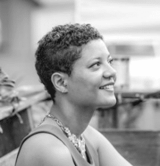Summary
DesignOps practitioners have helped advocate for inclusive design practices over the past several years. Still, key women-centric barriers persist such as safe access, time poverty, and female biological differences. To meet women’s needs, our design methodologies must ensure an inclusive lens from the start. In her talk, Mansi will share how DesignOps can engage their teams in embedding applicable insights, drawn from feminist practice, into their existing processes and toolkits. Attendees will leave with tools to: Learn from non-design disciplines Identify how our current methodologies overlook women Apply key design principles to create using a women-centric lens
Key Insights
-
•
Design methodologies claiming to be gender-neutral often produce one-size-fits-men products, ignoring women’s unique needs.
-
•
Women-centric design can be classified into four modes: offensive, impartial, informed, and holistic, each reflecting increasing levels of inclusivity.
-
•
The ‘offensive’ mode includes solutions that are patronizing or fail basic usability, like Pinky, a plastic glove for tampon disposal that was too large for women’s hands.
-
•
Most products fall into the ‘impartial’ category, lacking awareness of biological and societal differences, such as fitness apps ignoring menstruation or snow-clearing policies neglecting women’s caregiving roles.
-
•
Community and relationality are key non-negotiables in women-centric design; women often prefer learning and problem-solving together rather than top-down approaches.
-
•
The trust gap women face in systems often stems from systemic failures, not individual deficits like imposter syndrome or risk aversion.
-
•
Men and boys, while part of the problem, must also be part of the solution in women-centric design to share the responsibility for systemic change.
-
•
Safety is a fundamental, often overlooked theme; designing for emotional, mental, and physical safety is critical, exemplified by trauma-informed community designs.
-
•
Non-linearity in women’s lives, such as intermittent workforce participation and time poverty, should inform design in finance, healthcare, and customer service to create better experiences.
-
•
Ethical concerns around data privacy are acute in women’s health tech, especially in sensitive contexts like ovulation tracking—balancing free services and data security remains unresolved.
Notable Quotes
"In that moment, I looked down at my chest and failed to find a breast pocket of my own."
"Our methodologies today are prone to producing one-size-fits-men outcomes under the guise of being gender-neutral."
"Pink the pink plastic glove was too big for the average woman’s hands."
"Snow clearing policies choose to clear roads before pavements, deeply ignoring responsibilities that are likely to fall on women."
"Women’s empowerment is often glorified but doesn’t necessarily meet their needs beneath the surface."
"Safety is a fundamental human need which is often taken for granted and maybe that’s why it’s forgotten about."
"The trust gap stems from being repeatedly failed by a system, not innate risk aversion or imposter syndrome."
"Men and boys are part of the problem, therefore they must be part of the solution."
"Many ride sharing apps didn’t launch SOS features until after widespread reports of harassment, even though the problem was longstanding."
"I’m dreaming of a world where women-centricity is so ingrained that frameworks like this don’t need to exist anymore."
Or choose a question:
















More Videos

"We often say don’t make me think. When that’s not possible, reuse and recycle those learnings."
Sam ProulxOnline Shopping: Designing an Accessible Experience
June 7, 2023

"Transparency is one of our key values, so everyone in the studio was involved in building and maintaining the evaluation system."
Ignacio MartinezFair and Effective Designer Evaluation
September 25, 2024

"Design pairs gave strength in numbers, faster turnarounds, and more impact especially when paired with product managers."
Sarah Kinkade Mariana Ortiz-ReyesDesign Management Models in the Face of Transformation
June 8, 2022

"You could lift their famous ladder back chair with just your pinky finger—it’s exquisitely designed with minimal material."
Daniel GloydWarming the User Experience: Lessons from America's first and most radical human-centered designers
May 9, 2024

"Traditional metrics create a dangerous illusion where we optimize for what we can measure, not what people actually need."
Patrick BoehlerFishing for Real Needs: Reimagining Journalism Needs with AI
June 10, 2025

"There’s a big merger in this space and two UX giants haven’t been behaving nicely, introducing higher prices and stricter commercial terms."
Andy Barraclough Betsy NelsonFrom Costly Complexity to Efficient Insights: Why UX Teams Are Switching To Voxpopme
September 23, 2024

"User-centered design methods can be used at every stage of policy making, from intention setting to evaluation."
Alexandra SchmidtWhy Ethics Can't Save Tech
November 18, 2022

"Strategic friction is about where you apply friction deliberately to create insight and transformation."
Louis RosenfeldDiscussion: What Operations can teach DesignOps
November 6, 2017

"Design systems are the language of implementation; they allow us to communicate ideas in a common format and process."
Mitchell BernsteinOrganizing Chaos: How IBM is Defining Design Systems with Sketch for an Ever-Changing AI Landscape
September 29, 2021
















